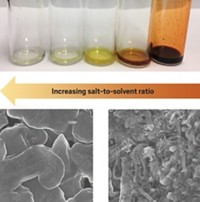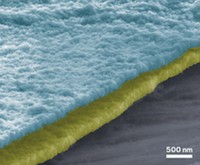Advertisement
Grab your lab coat. Let's get started
Welcome!
Welcome!
Create an account below to get 6 C&EN articles per month, receive newsletters and more - all free.
It seems this is your first time logging in online. Please enter the following information to continue.
As an ACS member you automatically get access to this site. All we need is few more details to create your reading experience.
Not you? Sign in with a different account.
Not you? Sign in with a different account.
ERROR 1
ERROR 1
ERROR 2
ERROR 2
ERROR 2
ERROR 2
ERROR 2
Password and Confirm password must match.
If you have an ACS member number, please enter it here so we can link this account to your membership. (optional)
ERROR 2
ACS values your privacy. By submitting your information, you are gaining access to C&EN and subscribing to our weekly newsletter. We use the information you provide to make your reading experience better, and we will never sell your data to third party members.
Materials
Electrode Separator Doubles As A Battery Safety Sensor
Thin metal film sandwiched between polymer layers sends early warning of battery failure
by Mitch Jacoby
October 20, 2014
| A version of this story appeared in
Volume 92, Issue 42
A new design of an insulating material that separates the electrodes in lithium-ion batteries may help prevent a rare but potentially disastrous scenario that can cause these batteries to suddenly go up in flames. A small number of burning-battery incidents, including two last year involving Boeing 787 Dreamliner airplanes, have kept lithium-ion batteries in the safety spotlight. Under circumstances that are not thoroughly understood, charging a battery sometimes drives lithium metal to accumulate on one electrode in the form of dendrites. As these tiny wiry structures grow, they can extend through microscopic pores in the protective polymer separator to the other electrode. That process short-circuits the battery and can cause it to quickly overheat. A team led by Stanford University’s Hui Wu and Yi Cui has demonstrated that by sandwiching a 50-nm-thick copper film between polymer layers they form a bifunctional separator. The hybrid material keeps the electrodes isolated and the battery functioning normally, yet it also serves as a detector for early stages of dendrite growth. Dendrites that grow halfway through the film contact the copper layer and cause a rapid voltage change that signals the need to replace the battery long before the situation turns hazardous (Nat. Commun. 2014, DOI: 10.1038/ncomms6193).





Join the conversation
Contact the reporter
Submit a Letter to the Editor for publication
Engage with us on Twitter